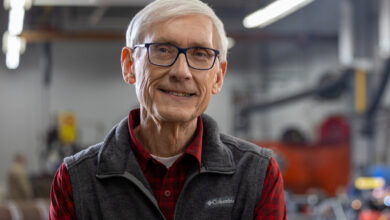
Anal-Cancer Study Seeks Houston Participants
Coordinator Lou Weaver will also provide guidance for better anal health.

The National Cancer Institute (NCI) at the National Institutes of Health is funding a study that they hope will lead to better detection and treatment of anal cancer at an early stage. The Prevent Anal Cancer Study is currently seeking Houston participants who are transgender and/or gay or bisexual men who have sex with men. The study will last six months, and could earn participants who are selected up to $130.
Dr. Alan Nyitray, 59, from the Medical College of Wisconsin, is the principal investigator who designed the study and secured funding from the NCI. In Houston, the Crofoot Clinic is the local partner where participant visits will occur. Lou Weaver, at the University of Texas Health Science Center’s School for Public Health, is the study coordinator. Nyitray’s team is also partnering with MD Anderson Cancer Center.
Transgender people and gay and bisexual men who have sex with men are often at greater risk for anal cancer. And those same individuals who are HIV-positive are especially at risk. This is because receptive anal sex and immunosuppression are among the contributing factors that cause anal cancer. The goal of the study is to find ways to detect the cancer earlier, when it’s easier to treat.
“If persons use their anus for sex, then they would be at greater risk. Anal cancer is primarily caused by the human papillomavirus (HPV), a sexually transmitted infection. For example, a penis can transmit HPV to the anus and increase risk for anal cancer just as a penis can transmit HPV to the cervix and increase risk for cervical cancer. Generally, cancer would not occur from these infections until decades later,” says Nyitray, who is gay.
Those factors apply to the trans community as well, Nyitray adds. “The contributing factors are the key. However, cancer centers still don’t collect good data on gender identity—or sexual orientation, for that matter. So it’s harder to know rates of anal cancer among trans people.”
Individuals who meet the base criteria can go to MindYourBehind.org to fill out an eligibility survey. The survey includes several questions related to the person’s age, sexual orientation/identity, and other identifying characteristics. Participants must also be located in one of the three metro areas where the study is taking place—Houston, Milwaukee, and Chicago.
“The current study was started in Houston because I used to be faculty at the University of Texas Health Science Center’s School of Public Health. We also did a preliminary study in Houston back in 2014 and 2015. Chicago was picked because it’s a big city, and I have a collaborator at the University of Chicago,” says Nyitray.
Milwaukee is, of course, home to the Medical College of Wisconsin, which is the lead agency for the study.
“Participants will be taught to perform an anal self-exam or an anal companion exam. After performing the exam in private, the individual’s exam (or the partner’s exam) will then be compared with a clinician’s digital anal rectal exam. The assessment will be done at each of two visits spaced six months apart,” Nyitray explains.
As the study coordinator, Lou Weaver, 51, is the main point of contact for the Houston participants. He will also play a large role in educating and training them about anal health and how to conduct the self-exams.
“Participans come to the clinic and first meet with me, where I do an introduction on the study and anal health in general. Then we use ‘butt dummies’ (aka Hans and Franz) to practice the self-examinations so that participants know what to do at home. Afterwards, they go into the exam room where a practitioner does an anal swab and examination. They are given the results that day, and then they are left to do the study on their own,” says Weaver, who identifies as a queer trans man.
Weaver said that what he hears most from folks is that they have no idea about anal health, have never had an anal exam, or have never thought about examining themselves. This study is designed to help participants learn about anal health as well as early anal-cancer detection.
“Let’s be honest: everyone uses their butt for at least one thing, but we don’t talk about it. There is a stigma around our butts, whether we are queer or not. We ignore it. But if you don’t know what’s going on with your butt, then you can’t take care of it,” Weaver emphasizes. “Understanding anal health is [important for good] sexual health as well as for our general health.” For study enrollment information, go to MindYourBehind.org.











Comments